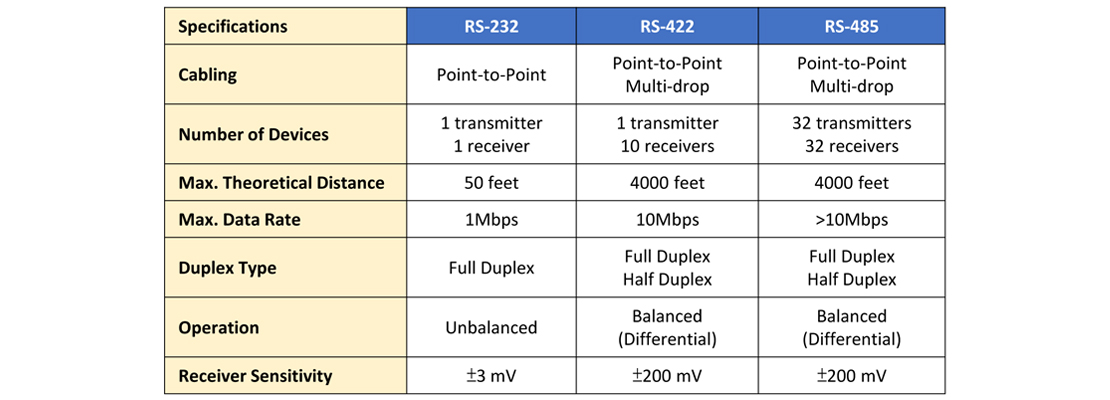Serial port is a kind of communication interface through which information transfers in or out sequentially one bit at a time. The term of "serial port" usually denotes hardware compliant with RS-232, RS-422 or RS-485.

RS-232
It is a standard for serial communication transmission of data. It defines the electrical characteristics and timing of signals. Compared with RS-422 and RS-485, the RS-232 has lower transmission speed, large voltage swing, short cable length, limited multi-drop capability and not support multi-point communication.
RS-422
It is also known as TIA/EIA-422. It was intended to replace the older RS-232 standard. It supports much higher speed, better immunity from noise, and longer cable lengths. RS-422 specifies differential signaling, with every data line paired with a dedicated return line. It cannot implement a true multi-point communications network such as with EIA-485 since there can be only one driver on each pair of wires.
RS-485
It is also known as TIA/EIA-485. RS-485 uses the same differential signaling over twisted pair as RS-422. In contrast to RS-422, RS-485 drivers use three-state logic allowing individual transmitters to be deactivated. This allows RS-485 to implement linear bus topologies by using only two wires. The electrical signaling is balanced, and multipoint systems are supported.
ORing provides full range of products with serial functionality:
- Serial Device Server
- Serial to Ethernet
- Serial to WLAN
- Serial to Optical Fiber - Serial Converter
- RS-232 to RS-422/485
- USB to RS-232 - Cellular Solution w/ Serial Interface
- 4G/LTE or 5G Router
- LPWAN Gateway



